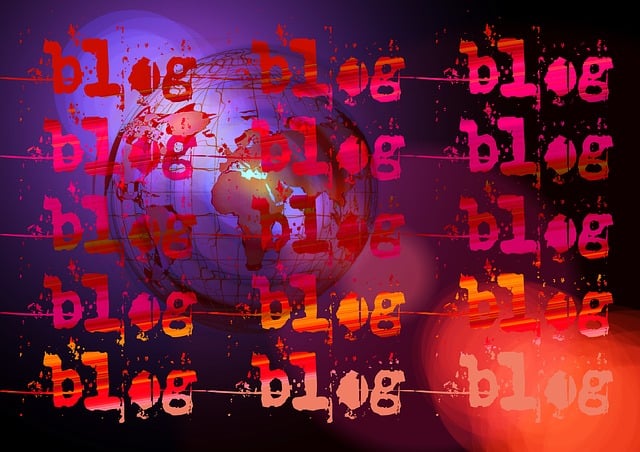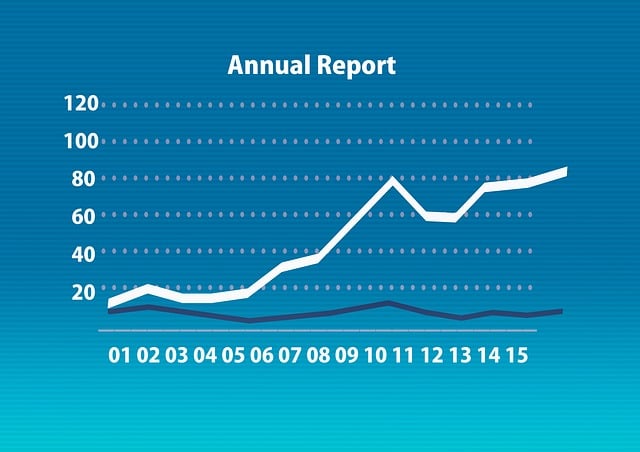Translation services for UK Public Health Reports are crucial for ensuring that all citizens, regardless of their native language, have equitable access to essential health information. These services go beyond basic translation by adapting content to consider cultural nuances and regional dialects, preserving the original message's intent and preventing misinterpretations. High-quality translations directly impact public health interventions' success by enabling informed decision-making among diverse populations and making health campaigns more effective. It is vital that these services are provided by professionals skilled in language translation, medical terminology, and ethical standards in handling sensitive health information to enhance community engagement and improve overall health across the UK. These translations not only make public health reporting frameworks, which monitor and enhance population health, more accessible but also critical for informed policy-making, efficient resource allocation, and effective public health strategies. Therefore, translation services are an integral component of the UK's public health infrastructure, ensuring that health information is both comprehensible and actionable for everyone. Their role was highlighted during initiatives like cervical cancer awareness campaigns and the COVID-19 pandemic, where they played a key part in achieving more equitable health outcomes by providing clear and timely communication to diverse communities within the UK.
Navigating the complexities of public health communication within a multicultural society like the United Kingdom necessitates meticulous clarity and cultural sensitivity. This article delves into the pivotal role of translation services in rendering UK Public Health Reports accessible to all, examining the intricate requirements of reporting, addressing the challenges faced when translating vital health data for diverse communities, and emphasizing the significance of precise and culturally attuned translations. By exploring best practices and showcasing effective case studies, this piece underscores the critical importance of professional translation services in enhancing public health outcomes across the UK.
- Ensuring Clarity in Public Health Communication: The Role of Translation Services
- Overview of UK Public Health Reporting Requirements
- Challenges in Translating Public Health Data for Diverse Populations
- The Importance of Accurate and Culturally Sensitive Translations
- Best Practices for Translating Public Health Information with Professional Services
- Case Studies: Effective Use of Translation Services in UK Public Health Campaigns
Ensuring Clarity in Public Health Communication: The Role of Translation Services

In the realm of public health, clarity and precision in communication are paramount, especially within a diverse nation like the UK where multiple languages are spoken. The dissemination of health reports to the public must be accurately translated to ensure that all individuals have access to vital health information regardless of their linguistic background. Here, translation services for UK Public Health Reports play a critical role in bridging the language gap and promoting health literacy across communities. These services not only provide literal translations but also adapt the content to reflect cultural nuances and regional dialects, which is essential for maintaining the original intent and message of the reports. This adaptation process is pivotal in avoiding misunderstandings that could arise from a direct word-for-word translation, thereby ensuring that public health advisories, guidelines, and research findings are accessible and comprehensible to all citizens.
Furthermore, the effectiveness of public health interventions often hinges on the quality of translation services employed. Accurate translations facilitate informed decision-making by the public and enable targeted health campaigns to resonate with diverse populations. In selecting translation services for UK Public Health Reports, it is imperative that these providers are not only linguistically proficient but also trained in medical terminology and familiar with the ethical considerations of handling sensitive health information. By leveraging expert translation services, public health authorities can enhance their communication strategies, thereby improving community engagement and fostering a healthier society for all.
Overview of UK Public Health Reporting Requirements

The United Kingdom’s public health reporting framework is a critical component in safeguarding and improving the health of its population. Public health authorities within the UK are mandated to regularly compile and disseminate comprehensive reports on various health indicators, including infectious diseases, chronic conditions, and healthcare service performance. These reports are pivotal for informing policy decisions, allocating resources effectively, and guiding public health interventions. To ensure that these health reports reach a broader audience, including stakeholders who may not have English as their first language, translation services for UK Public Health Reports play an indispensable role. These services facilitate the accurate interpretation of health data and guidance, making them accessible to healthcare providers, local authorities, and the general public across diverse linguistic communities within the UK. The provision of high-quality translations not only enhances understanding but also aids in the swift and informed response to public health threats and opportunities. As such, the integration of translation services is an integral aspect of the UK’s public health reporting system, ensuring that health information is both accessible and actionable for all segments of society.
Challenges in Translating Public Health Data for Diverse Populations

The translation of public health data into accessible languages for diverse populations within the UK presents a complex array of challenges. UK public health authorities generate extensive reports that are critical for informing policy, guiding clinical decisions, and educating the public on various health issues. However, these reports are often dense with technical language and statistical analysis that can be difficult to comprehend for individuals who are not experts in the field. To ensure that this vital information is accessible to all, including those with limited proficiency in English or different linguistic backgrounds, translation services for UK Public Health Reports play a pivotal role. These services must navigate the nuances of both source and target languages, as well as consider cultural contexts and sensitivities that can influence how health information is received and understood. The challenge extends beyond mere word-for-word translation; it necessitates a deep understanding of public health concepts, medical terminology, and the potential implications of mistranslation. This requires not only linguistic expertise but also a specialized knowledge base that encompasses public health principles and the socio-cultural factors influencing health behavior among diverse populations. Consequently, the translation process is not just about conveying information accurately but also about ensuring that the message resonates with the intended audience, thereby facilitating informed decision-making and fostering better health outcomes for all members of society.
The Importance of Accurate and Culturally Sensitive Translations

The translation of public health reports in the UK is a critical task that demands precision and cultural sensitivity to ensure clarity and accuracy. As the UK’s public health authorities produce a myriad of reports for diverse populations, including ethnic minorities and non-English speaking communities, the need for translation services for UK Public Health Reports becomes paramount. These translations must transcend mere linguistic equivalence; they should be culturally adapted to resonate with the target audience, considering local idioms, values, and health literacy levels. This is essential because miscommunication in public health can lead to misunderstandings about health risks, preventive measures, and treatment options. The use of professional translation services that specialise in medical terminology ensures that the messages within these reports are accurately conveyed, thereby supporting informed decision-making among individuals from different cultural backgrounds. This not only fosters inclusivity but also aids in the effective dissemination of public health information, ultimately contributing to better health outcomes for all members of society.
Best Practices for Translating Public Health Information with Professional Services

When it comes to translating public health information, accuracy and clarity are paramount. For UK public health authorities looking to disseminate critical health reports to diverse populations or international partners, leveraging professional translation services for UK Public Health Reports is not just a best practice—it’s an essential operational necessity. These specialized services ensure that all linguistic nuances and cultural contexts are appropriately captured and conveyed, thereby maintaining the integrity of the original content. Professionals in this field bring expertise in medical terminology, along with proficiency in both source and target languages, which is crucial for technical documents like public health reports.
Furthermore, these translation services offer a range of benefits, from ensuring compliance with legal requirements to enabling effective communication across multicultural communities. They provide a consistent and reliable method for translating complex information, which is essential given the critical nature of public health data. By utilizing advanced translation technologies combined with human expertise, these services can handle large-scale projects efficiently while upholding the highest standards of quality control. This dual approach—blending sophisticated software with expert linguists—ensures that UK public health authorities can effectively reach and inform a wider audience without compromising on precision or reliability.
Case Studies: Effective Use of Translation Services in UK Public Health Campaigns

The translation of UK public health reports into multiple languages has proven to be a critical component in ensuring that vital health information reaches a diverse population. A case study involving the National Health Service (NHS) and local health authorities demonstrated the effectiveness of professional translation services during a region-wide awareness campaign about cervical cancer screening. The campaign materials, including brochures, flyers, and digital content, were translated into several languages commonly spoken in the area. This enabled non-English speakers to understand the importance of the screening, leading to higher engagement rates among these communities. Another instance where translation services for UK Public Health Reports played a pivotal role was during the COVID-19 pandemic. The rapid spread of the virus necessitated immediate and clear communication in various languages. By leveraging skilled translators, public health messages were disseminated effectively across diverse linguistic groups, facilitating informed decision-making and fostering compliance with public health measures. These case studies underscore the importance of language accessibility within public health campaigns to ensure equitable health outcomes for all residents in the UK.
In conclusion, maintaining clarity and accuracy in UK public health reporting is paramount for effective communication, especially when addressing diverse populations. The utilization of professional translation services for UK public health reports ensures that health information is both accurately conveyed and culturally sensitive to different communities. By adhering to best practices outlined in this article, public health authorities can navigate the complexities of translating data effectively, thereby enhancing public understanding and engagement with critical health information. The case studies provided highlight the successful implementation of such translation services, demonstrating their role in strengthening public health campaigns across the UK. Through these efforts, the health reports become clearer and more accessible, ultimately contributing to better public health outcomes for all.
